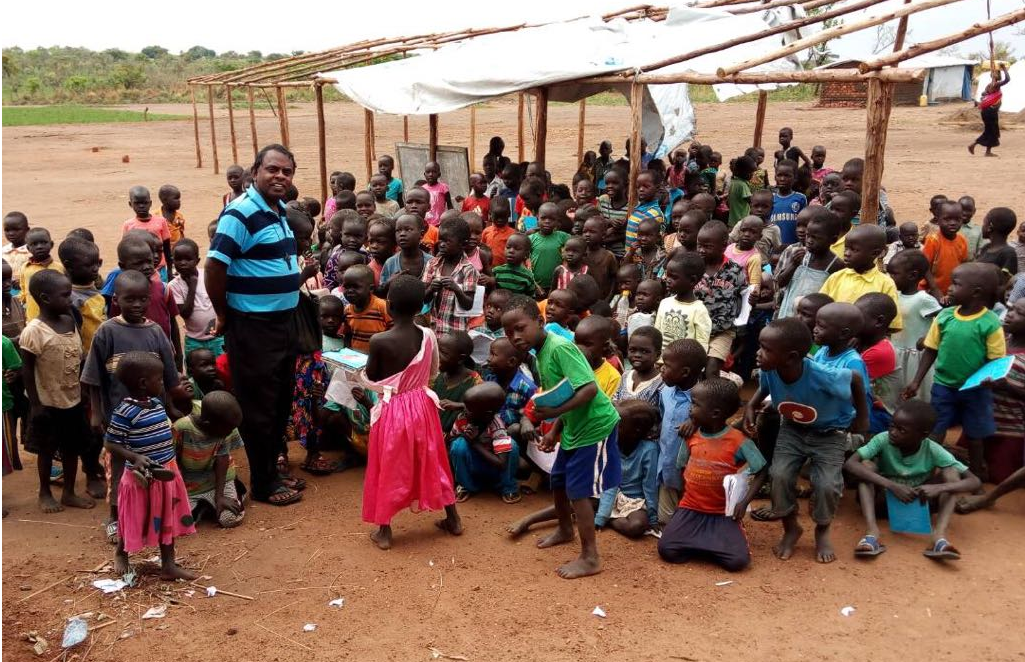UGANDA: Salesian missionaries are providing pastoral, social development and educational initiative at Palabek Refugee Settlement

(MissionNewswire) Salesian missionaries provide a range of pastoral, social development and educational initiatives to refugees living in the Palabek Refugee Settlement in northern Uganda. The refugee settlement is currently hosting 42,000 people with an average of 300 new refugees arriving each week from South Sudan. It was officially set up in April 2016 to reduce congestion in larger refugee camps in the northwestern corner of Uganda.
Uganda hosts close to 1.3 million refugees, the majority coming from South Sudan. Others are fleeing from the Democratic Republic of Congo, Eritrea, Somalia, Burundi and several other countries. Father Lazar Arasu, a Salesian missionary overseeing the work at Palabek, has noted that in addition to Palabek, other large camps are situated in the northwest districts such as Arua, Yumbe, Adjumani and Moyo, each hosting hundreds of thousands of refugees.
“The settlement started in March 2017, and people are arriving in hundreds to date,” explains Fr. Arasu in his recent article in Leadership Magazine-Uganda. “Women and children constitute 86 percent of the settlement. Others are young male adults and one percent are elderly men and women. The settlement is full of young adolescent girls. Often it makes us wonder, what is their future? How can we be of service to them? Young male adults are believed to be guarding their properties in their home countries and fighting in warring factions.”
The Palabek Refugee Settlement is divided into eight zones. Zones are further divided into blocks. Each block may have more than 100 households. Each household has five to seven people, not necessarily belonging to the same family. Each household is given a plot of land measuring 30 by 30 meters. On the land provided, refugees build little huts and a latrine as well as cultivate some food. It is called a settlement because people are allowed to live as long as they want. They will not be asked to go back to their home country if they choose to remain in Uganda.
On arrival, a household is given one tarpaulin, a few tree-poles, a few meters of rope, a set of cooking utensils, a solar light and sleeping mats for each person. It is up to the refugees to fend for other needs such as clothes and other basic necessities of daily living. Often refugees arrive at the camp hungry, thirsty and with only the clothes they are wearing. In tears, they narrate the many atrocities and human rights violations they have gone through at the time of leaving their home land.
“Human life is not only food, clothing and shelter,” adds Fr. Arasu in the article. “Refugees are in need of security, education, psychosocial support and several other basic things for meaningful living. People have been reduced to zero. They have lost their homes, properties and above all, their dear ones, and their dignity as human beings.”
Within Palabek several agencies are involved in providing food and education. Salesian missionaries are offering much-needed psychosocial support and pastoral care for thousands of Christians. They are also running four nursery schools that educate more than 1,000 children. In addition, Salesian missionaries are in the process of constructing a vocational/ technical training center with the intention of offering life skills and other training to help youth prepare for employment in the near future. Currently, there are four Salesian priests in the settlement.
###
Sources:
Photo courtesy Don Bosco Palabek Refugees Resettlement Camp




